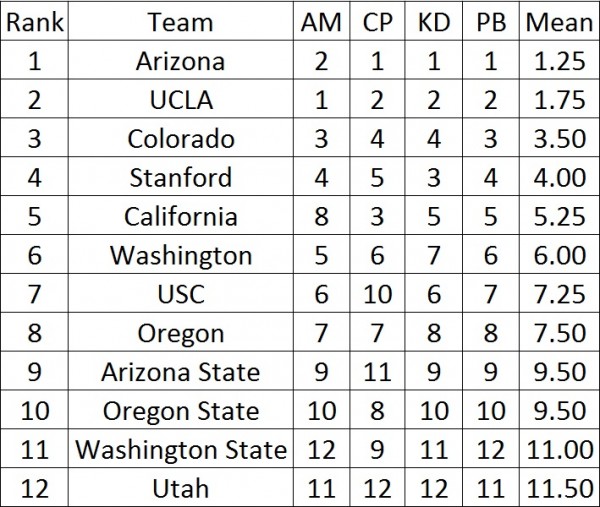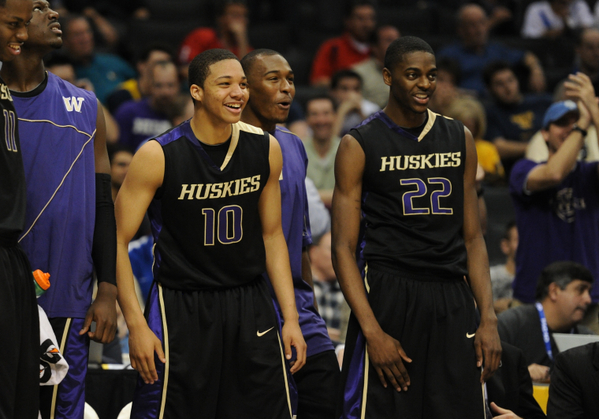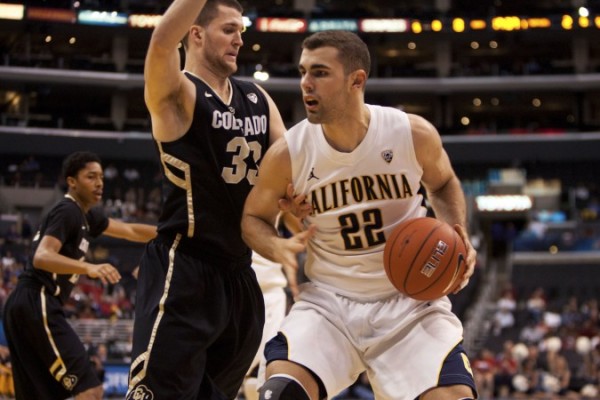Marching To Vegas: But How Many Will March Beyond?
Posted by AMurawa on December 14th, 2012From the moment it was first rumored, the relocation of the conference tournament to Las Vegas has created quite a buzz among Pac-12 basketball fans. Adam Butler (@pachoopsAB) of PacHoops will be here every week as he offers his unique perspective along our March to Vegas.
Earlier this week, Joe Lunardi posted his updated Bracketology. Amidst the returning cries of mediocrity in the Conference of Champions, ESPN’s foremost bracketologist allotted six spots to the Pac, the second largest number amongst all conferences. This is a number that the conference hasn’t sent dancing since 2009. In his projected field he’s got Arizona as the highest Pac seed (#3) and Stanford the lowest (a play-in #12). UCLA is a declining #12, Colorado a solid #7 (second highest seed), Cal an improving #9, and Oregon a solid #10. That, indeed, is six teams dancing. This, indeed, is December; but what else are we going to talk about during exams week? There’s a lot of season remaining to resume boost but it’s good to see six Pac teams projected to dance (I fully understand the arbitrary nature of December brackets). It’s certainly a different look from last season’s actual bracket in which just two teams danced; a page I like to think the conference has turned. Or have they?

Arizona Presently Leads The Way Among Pac-12 Teams, But Even They Don’t Have Any Great Quality Wins. Yet. (Casey Sapio, USA Today)
Percy Allen proposed a similar question earlier this month when he brought up the issue that, once again, the Pac-12 is struggling against ranked opponents. He makes the argument against SOS, RPI, and other acronyms for tried and true Wins. A concept I rather love. So Allen harps on the conference’s win-loss record against ranked opponents; a record the Pac has run to 2-16 this year. An unimpressive stat to be sure and one that cannot bode well in the eyes of a selection committee tasked with selecting the 37 most eligible bachelors. The conference’s collective work would not seem to be deserving of significant (say… six?) invitations. He is quick to point out that there are remaining games against ranked opponents (four, highlighted by Saturday’s Arizona-Florida game); a fleeting effort to bolster that conference win-loss record against ranked opponents. But for what? Will Colorado not dance because USC over-scheduled and went oh-for-the-season against ranked opponents? Could Oregon wind up a #10 seed but not a #8 because Stanford struggled at the Battle 4 Atlantis? Not necessarily. A team’s success helps the conference, giving everyone a chance to play a better opponent. But they’re flounderings? Well those can only hurt if you lose to them in which case what’s it even matter if the conference is undefeated or defeated against ranked opponents? The name of the game, as Allen agrees, is winning.














































